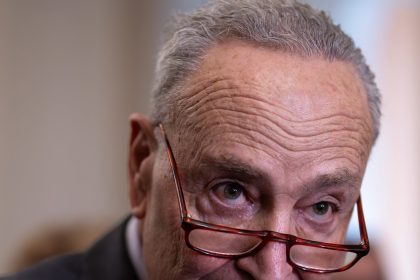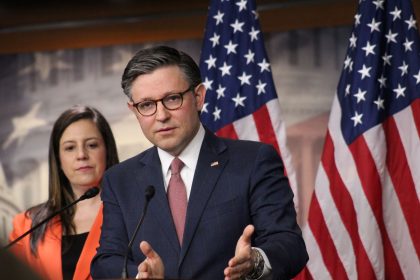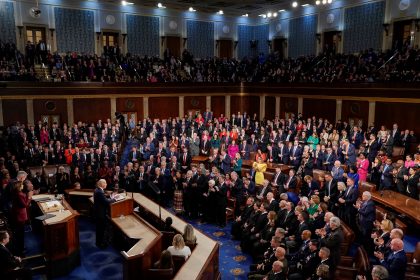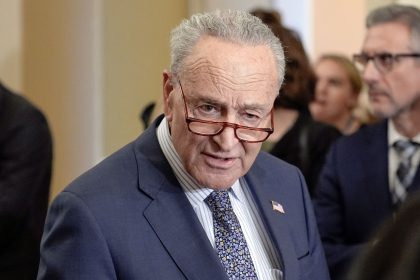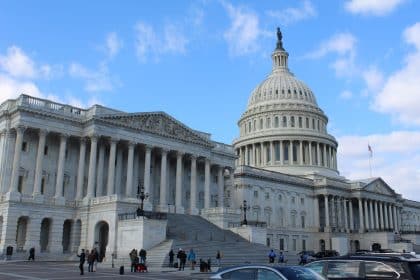CBO Long Term Outlook Report ‘Doesn’t Look Good’

WASHINGTON — The Congressional Budget Office recently released two new outlook reports. These projections are an update of the U.S. deficit, debt, spending, and revenue over the next decade and beyond, given current laws in place. The pair of reports highlight the nation’s unsustainable budget trajectory.
CBO frequently releases baseline revenue projections, both for ten year increments and for longer-term 30 year outlooks. The last baseline report was released in March 2020, though this report held exclusively pre-pandemic data, “when all we were dealing with was a fiscal crisis on the horizon,” according to Mark Goldwein, senior policy director for the Committee for a Responsible Federal Budget, who offered an in-depth analysis of the committee’s findings from the CBO reports.
“Pre-COVID, we were facing trillion dollar deficits even with strong economic data,” Goldwein said. Now that CBO has released its first post-COVID 10-year baseline, the analyst fears “this crisis turned what was already bad into a massive, unheard of deficit.”
Predictably, the CBO reports suggest that the nation’s fiscal outlook is worse than estimated last year. It reveals deficits higher than at any point in modern history, with federal debt reaching almost double the size of the economy by 2050.
“We are on an unsustainable fiscal path, folks,” Goldwein warned.
The CBO’s latest projections have dire implications for the nation’s long term fiscal health and economic growth. It seems the nation has advanced its bad debt situation by a decade, and the outlook shows that the U.S. won’t be able to raise enough to offset it. There is a drop in tax revenue expected along with the decline in output and employment from the coronavirus, which, given the government’s large increase in spending, leads to a spike in the federal budget deficit.
“If we’re not raising enough, the more interest we incur… interest is the fastest growing part of our budget… so interest will [soon] be our single largest government program. And this is the optimistic ‘in current law scenario,’” Goldwein said, suggesting that future administration’s budget priorities could set the nation back even farther.
In the pre-COVID CBO report, this year alone, debt was projected to raise another 20%, but now CBO projects debt will reach 98% of the total U.S. economy this year.
“The long-term debt outlook is bad [even] when the coronavirus is far behind us,” Goldwein said. “Every dollar spent on interest is a dollar we cannot spend on something else. [This] is going to play into a long-term national debt. And the longer we take to fix the debt, the harder it will be.”
Of course, much of current overspending is primarily due to the pandemic response, but the nation’s trajectory was already dismal.
“Trump entered office with an already precarious fiscal situation,” Goldwein explained. The aging of the U.S. population means more people are collecting government benefits and health care costs are growing rapidly while at the same time GDP is experiencing “dismal economic growth.”
“The trust funds are in trouble. Every major trust fund is projected to run out in the next 11 years,” Goldwein forewarned. “That means somebody 62 today will be 73 when Social Security runs out.”
And despite the U.S. dollar currently serving as the global reserve currency, Goldwein argues that the U.S. deficit does matter. It matters very much.
“So long as the U.S. has… a relatively stable political system, we have higher debt capacity, but deficits still matter,” he said. “Even if we can borrow it, that doesn’t mean that debt is costless. We can be the most credible debtor in the world and still fail.
“There is no guarantee that we’ll maintain credibility – it’s one of those things you have until you don’t — so this may be a situation of ‘the bigger they are, the harder they fall.’”
And as for money-financing U.S. debt, or the Macroeconomic Monetary Theory that proposes governments controlling their own currency can freely spend and print more money to pay off debts in their own currency, Goldwein cautions that “most credible economists don’t think we can live in a way that’s money-financed. It usually ends in hyper-inflation.”
So according to Goldwein’s analysis, the future is bleak and needs a plan. He admits that all that can be done now is to focus on coronavirus response, but he stresses that the U.S. needs to phase in debt reduction as soon as possible.
“I don’t think anyone thinks that during the pandemic the focus should be austerity, but we need to start a plan to reduce it,” Goldwein said, specifically looking to the presidential candidates for their budget proposals. “I would love for candidates to have a plan to reduce debt, to pay for their stuff,” he said. “ And what are we going to do about the trust funds?”


















